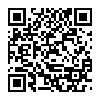There are three good date-handling functions provided by PHP: checkdate, date_parse and strtotime. Checkdate will validate any Gregorian date, date_parse returns detailed information on a valid date and strtotime will parse almost any textual representation of a date. As clever as they are though, these functions can’t help with certain date strings.
Consider the following:
1st January 1900: Seems simple enough, but the date functions don’t react well to dates earlier than 1st January 1970;December '61: We often abbreviate years with a leading apostrophe, but the date functions of PHP don’t like this either;16th: dateFinder assumes that the user means the 16th of the current month;1941: A valid year, but earlier than 1970. Could cause problems;This august body met on the 15th April, 1982: The date here is obvious to a human reader, but a text-to-date parser will stumble over the use of the word “august” in this context.
I thought it would be interesting to write a date parser that can handle these edge-cases and the result is the dateFinder PHP class.
Given a string, dateFinder will try to extract a valid date from it. It returns an array containing a year, month and day corresponding with the first date it finds. The array will optionally contain a “range” key, if dateFinder was unable to determine an exact date from the input string (ie: it could only extract a year, month or both).
If dateFinder is unable to extract a valid date, then it will simply return a boolean false.
For example:
1969: returns (1969, 1, 1, true)Dec '69: returns (1969, 12, 1, true)7th December, 1969: returns (1969, 12, 7)64th December, 1969: returns false
Usage
<?php
$df = new dateFinder('December 7th, 1969');
var_dump($df->parsedDate);Code
This project is on GitHub.
 The dateFinder
The dateFinder